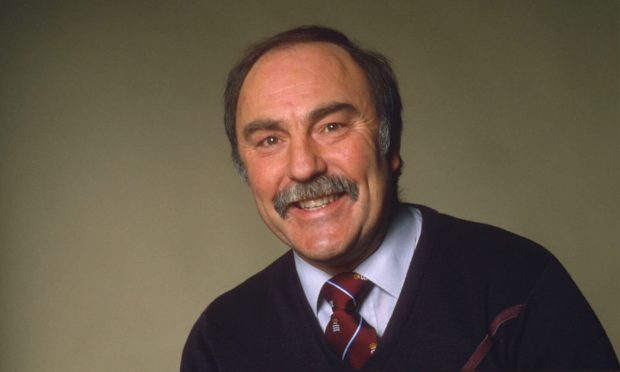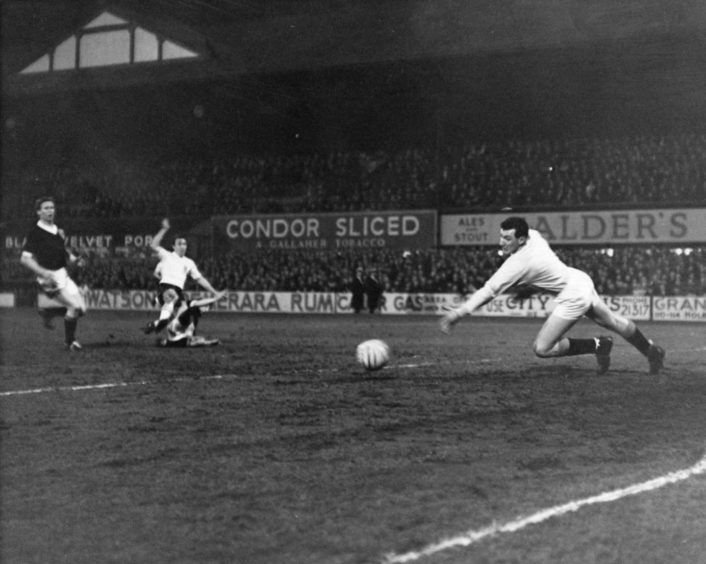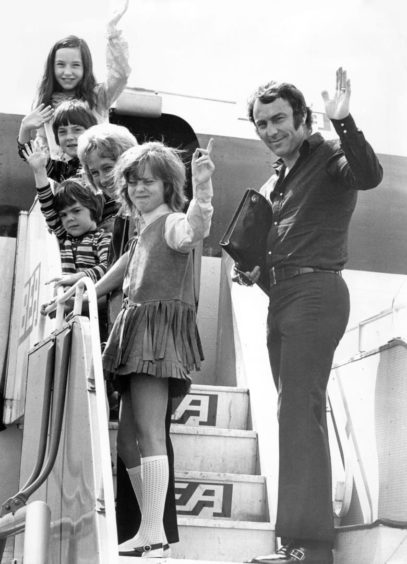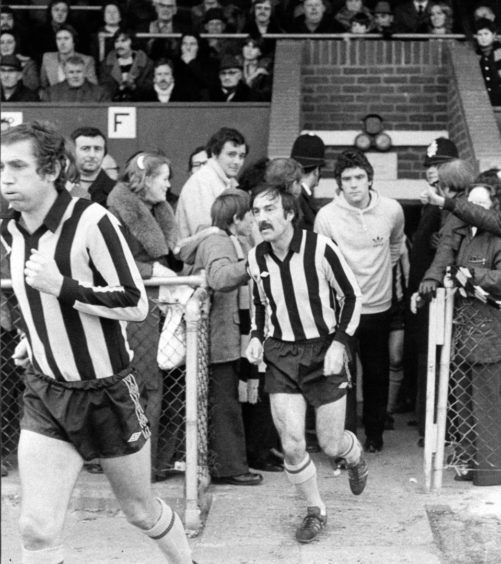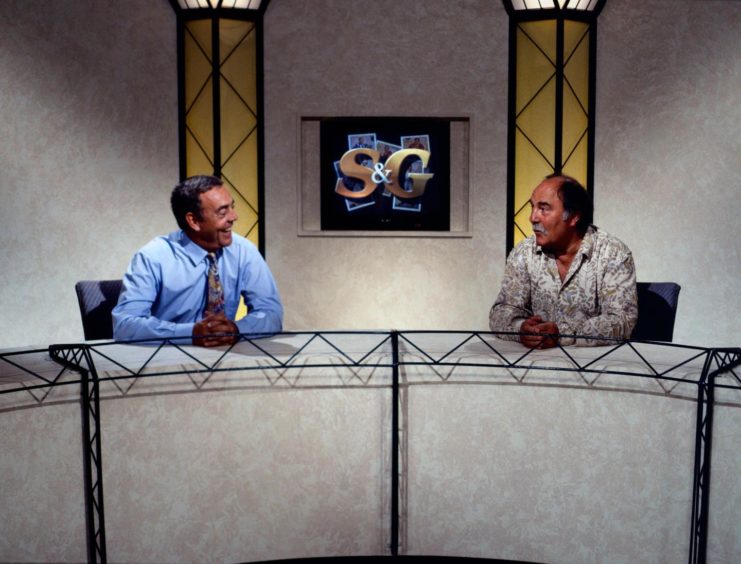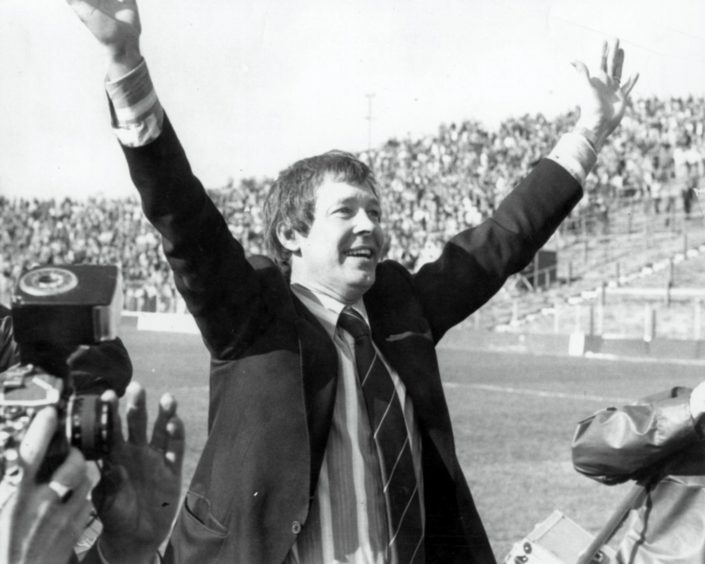Tottenham and England legend Jimmy Greaves almost pulled on an Aberdeen shirt under Alex Ferguson.
Greaves, who died at the age of 81 on Sunday, agreed to be a guest player for the Dons in a four-team tournament in Malta which was due to take place in December 1979.
The tournament involving Aberdeen, Stoke City, Leicester City and the Maltese national team was being staged by the Maltese FA to officially open a new pitch.
England World Cup winning goalkeeper Gordon Banks and Johan Cruyff also agreed to take part as guests in the three-day Paro International Cup.
Stanley Matthews
Sir Stanley Matthews, who still lived on the island after moving to coach the Maltese side Hibernians in the early 1970s, was also set to pull on a shirt and play for Malta.
Greaves played at Pittodrie back in February 1962 when he scored twice in a 4-2 win for England against Scotland in an under-23 international match.
He went on to score 44 goals in 57 international appearances for England and remains Tottenham’s record goal-scorer with 266 goals in 279 games.
His stardom was such that in 1964 John Lennon stopped a Beatles concert at the London Palladium mid-set after spotting Greaves in the crowd.
Greaves also played for AC Milan and West Ham United and scored a total of 366 top-flight goals before retiring in 1971 after he fell prey to alcoholism.
He sobered up in 1978 and was playing for non-league Woodford Town at the age of 39 when he agreed to take part in the Malta tournament.
“Cruyff will pull on an Aberdeen shirt and line up in the Dons attack,” said Ferguson.
“He will be just one of three guest players who will take part in a four-team tournament in Malta from December 8 to 13.
“The other two are Gordon Banks and Jimmy Greaves, the former England internationals, and each one will play for the Dons at some time during the tournament.
“The tournament takes place immediately after the League Cup Final so with a little luck we could be going over there to celebrate.
“But whatever happens, the Malta trip will provide an excellent break for the players during what could be another cold hard winter’s football.
“Three games in the sunshine should tone the players up and the fact that Aberdeen fans are also being given the chance to join us in Malta should make it an enjoyable trip.
“The object of the tournament is to provide the soccer-mad Maltese with some good British football.
“And with Cruyff, Greaves and Banks in the line-up there will be plenty for the fans to enjoy.”
Short notice
But just 10 days before they were due to fly out to the Mediterranean the tournament was cancelled.
The Maltese government and the Maltese FA were involved in a squabble as to who should pick their international side.
“This has come as a big shock at such short notice…both to the players and the fans who were booked up for a trip to watch us,” said Ferguson.
“The club and supporters have been advised that the tournament has been called off because of an internal row.
“However I hope to find some alternative as the players had all been looking forward to the trip.”
Aberdeen put the disappointment behind them and went on to win the league title in 1980 which was the catalyst for the glory-laden decade that followed.
Greaves went on to enjoy a career in broadcasting during the 1980s, most notably working alongside Ian St John on Saint and Greavsie.
Greaves spoke of his admiration for Ferguson when he discussed Aberdeen’s 1983 European Cup Winners’ Cup victory over Real Madrid on the lunchtime show.
He said: “What Alex did at Pittodrie was remarkable and I wasn’t surprised that they won in Europe.
“Real Madrid looked a bedraggled outfit and when a man like [Alfredo Di] Stefano puts on a defender in the closing stages and they were obviously playing for penalties, I really think it showed Aberdeen’s superiority.
“There was their fitness, their control, the fact that everybody played well, and [Willie] Miller and [Alex] McLeish were both masterful, apart from the one mistake [by the latter for Real’s goal].
“And Gordon Strachan got stronger and stronger as the match went on.
“They were all great, Ian.
“And they can all be very proud of themselves.”
Ferguson went on to join Manchester United in November 1986 and his side finished 11th in his first season after taking over from Ron Atkinson.
Greaves urged the fans to stick with Ferguson when there were calls for him to be sacked with United sixth in the table after being in charge for a year.
He said: “Fergie is under pressure but getting rid of the boss won’t solve United’s problems.
“It’s the majority of the United team who should get the sack.
“The club have signed a number of players who should all have done a decent job for the side.
“But with a couple of notable exceptions, none of them have done the business.
“They got Atkinson the axe and could do the same for Fergie.
“They don’t have enough pride to play for such a great club as Manchester United.”
Ferguson struggled in those early years at Old Trafford before he picked up his first trophy for the club by defeating Crystal Palace in a replayed FA Cup final in 1990.
A year later, his side won the European Cup Winners’ Cup against Barcelona in 1991, before winning the Premier League title in 1992.
The rest is history.
More like this:
From Barcelona to Boghead: Johan Cruyff almost played in Scotland in 1980
